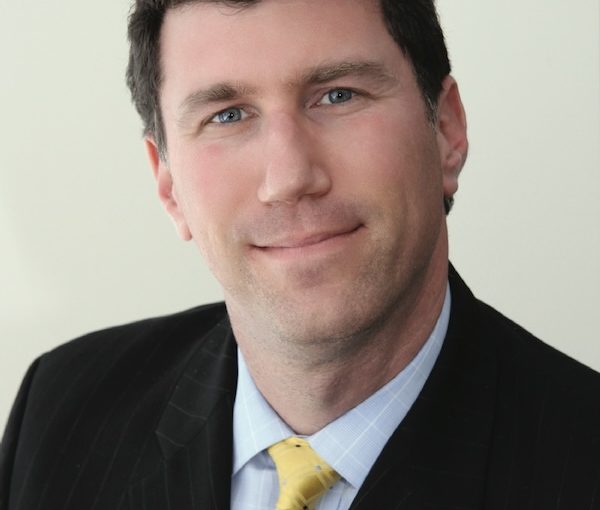Lance Davis, chief executive officer of JNF Canada. (photo from JNF Canada)
The Jewish National Fund of Canada is fighting the Canada Revenue Agency over the revocation of the organization’s charitable status, accusing the federal taxation department of “blindsiding” them and treating them differently than other charities. The head of JNF Canada sees bias at play.
“Do we think the CRA is antisemitic?” asked Lance Davis, JNF Canada’s chief executive officer, in an interview with the Independent. “No. Do we think there is bias involved here? Yes. That’s actually part of our court application. We have said in writing that we believe there is bias.”
The difference, Davis explained, is that, while CRA officials may not carry prejudice toward Jewish people, their decision may have been influenced by a concerted, multi-year campaign attacking JNF – Independent Jewish Voices Canada has a website dedicated to the campaign.
Through a Freedom of Information Act request, JNF Canada obtained the files used by CRA to make their determination.
“So we know what was written in the file that the CRA is using with respect to JNF Canada and it is littered with complaints in an organized and systematic way from anti-Israel groups, unions, political parties, etc.,” he said. “After you read all of this material, one can reasonably say that bias may have come to play into the decision-making process.”
Davis is emphatic that media have so far got the story wrong. The revocation is not about JNF Canada’s support for projects on Israel Defence Forces bases or on the other side of the Green Line, outside of Israel proper. CRA expressed concerns about these projects several years ago and JNF Canada immediately ended those undertakings, he said.
“Yes, we have over the last number of decades built all sorts of public amenities on IDF bases,” he said. “Those amenities include swing sets, playgrounds, parks, play areas … shaded areas, rest areas, all that kind of stuff. We disagree that that is not charitable. Helping the children who have to live on a base … we believe is charitable.”
Moreover, the money for such past projects did not flow to Israel’s military, said Davis. It went to a charity that built the projects.
“Nevertheless, when it was brought to our attention that this is a problem according to the CRA, we stopped doing it in order to be cooperative and collaborative with the CRA,” he said. “That’s not what this revocation is about. It might be an interesting subject for the media or those outside parties to conflate, but this issue that we’re dealing with the CRA is fundamentally about our founding charitable object. They’ve come to the conclusion that it is not charitable.”
The issue, Davis said, is that CRA, after 57 years, has abruptly reversed the 1967 acceptance of the organization’s charitable objective.
In 1967, said Davis, CRA’s predecessor agency accepted JNF Canada’s purpose of funding projects in which economically disadvantaged individuals in Israel, especially new immigrants as well as Palestinians, are hired to complete projects like tree-planting and digging reservoirs, with the intention of keeping them off welfare rolls and combating poverty.
The current troubles between CRA and JNF Canada started during an audit that began in 2014. When the auditor cited the original objective as incompatible, Davis said, the organization immediately set out to negotiate new charitable purposes that would satisfy CRA.
“We presented 10 of them in writing and said, please work with us, let’s pick any or all of these and we’ll get to work,” said Davis. “CRA did not negotiate with us at all about any of those charitable objects.”
Those objectives, he noted, were replicated by JNF Canada from other recognized charities that had received approvals from CRA.
The organization’s leaders say they were “blindsided” by the decision, which was released Aug. 10, via the Canada Gazette, the federal government’s avenue for publicizing legislation and government decisions.
The revocation is the culmination of a crisis that began at the end of June, when JNF was notified that CRA intended to revoke their charitable status. Within weeks, the organization’s lawyers had filed suit with the Federal Court of Appeal.
In every similar instance JNF’s lawyers reviewed, Davis said, CRA refrained from revoking the status at least until the organization had their day in court.
“There is this idea of a presumption of innocence until you’ve exhausted all your appeals,” said Davis. “Why weren’t we given a presumption of innocence? Why weren’t we given a chance to say our piece before the judge? It’s a right that every Canadian business, individual, charity is entitled to.”
For now, JNF Canada is not permitted to provide charitable receipts.
“We are still a nonprofit, we still exist, we’re still an entity,” Davis said.
If the Federal Court of Appeal sides with CRA, JNF could take the matter to the Supreme Court, Davis said. Alternatively, they could potentially restructure the way they do their work.
“We are working through thoughts and plans with our legal counsel as to how we could best continue the work of JNF in a legal, charitable manner,” he said. “But we are confident in our case and we feel that it’s vitally important for us to challenge the CRA and the facts that they’ve presented.”
JNF Canada has not yet publicly released documents relating to the matter, as they await their lawyers’ annotations to provide both the CRA’s perspective and the JNF’s replies to the government agency’s concerns.
In dealing with JNF Canada, Davis contends, CRA has behaved differently than they routinely do with other charities. The due process they should expect has not been forthcoming and the government agency has leapfrogged several steps that charities are generally provided in the progression of an issue, he said.





